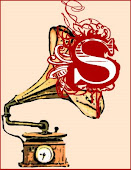
Time for number two in my limited series of three Miles Davis tracks..
Next up is Freedom Jazz Dance, recorded in 1966 for the album Miles Smiles, eight years after Milestones. There was a new, young band behind the trumpeter and it was pushing outwards, experimenting with rock rhythms, starting to take melodies to pieces and explore the resulting fragments, and developing an unparalleled rapport.
Bassist Ron Carter, with his immense technique, took over time-keeping duties, letting mercurial, 20 yr. old drummer Tony Williams off the leash to provide the energy and the impulses, drive the soloists and spark mood changes. Pianist Herbie Hancock and saxophonist Wayne Shorter were continually spurred on by Miles to "play what they didn't know"; both were innovative composers and each was forging their own career separately with Blue Note records, but Miles' strength was always that he could provoke or inspire his band members to produce their best work with him, regardless of their side projects.
The album "Miles Smiles" is a wonderfully spontaneous, joyous recording, with numerous fluffs, false starts, and fooling around, as evidenced by the numerous ad-libs and humorous remarks left on the recording by producer Teo Macero. It also contains some of the most compelling jazz ever recorded.
Freedom Jazz Dance is a reworking of a funky track written by Eddie Harris, but is given a completely different rhythmic workover to make it a lot more abstract. On top of a rolling drum intro the horns play a complex melodic line, ending in a dramatic crescendo. The tentative beginning, sounding like a false start, with Miles testing the waters before Wayne Shorter joins him, only heightens the decisiveness of the crashing chord Hancock plays at the top of the theme.
During the solos Williams switches to a loose, stuttering, ever changing backbeat, while Ron Carter subtley manipulates the pulse with a breathtaking range of phrases. But neither of them is really keeping time, despite Williams' metronomic hi-hat: instead the focus of the pulse is shifted back and forth almost telepathically between drummer, bass player and pianist. After Davis' spare, punchy solo, Wayne Shorter continues, building more coherent chains, sinously turning the melody on its head, followed by Hancock's deconstruction of the piece into almost oriental themes. Contrasting this to "Milestones" the constraints of the earlier piece become apparent; in "Freedom Jazz Dance" everything is much more intimate, while at the same time much looser than on Milestones.
Listen to Tony Williams' drumming during the horn solos; how towards the end of the solos he starts to "complete" phrases the horns hint at, and opens up space for them by tilting the emphasis of the rhythm. Miles never embraced "free" jazz, but within the apparently tight groove there's a looseness, spontaneity and reciprocity in this piece which has seldom been carried out with such virtuousity.
Freedom Jazz Dance
Otherwise, check out the (also brilliant)
Eddie Harris original









